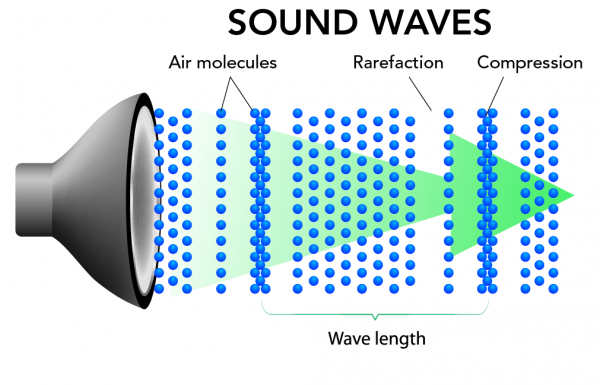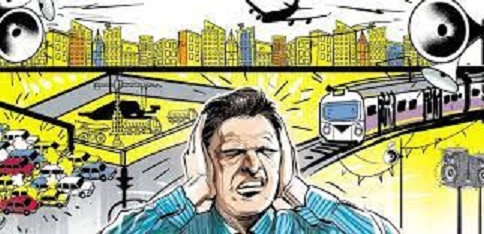Do you know about the Organizations Against
Noise Pollution? In a nutshell, any sound that disturbs the silence, whether or not you are accustomed to it, is noise – but have we ever considered the impact of noise pollution on humans?

Noise pollution has a wide range of consequences and is now present in almost every setting. Loud music in
concerts,
cars on the streets, planes flying over houses, construction
equipment in the neighborhood, and factories in urban communities are all examples of noise pollution (more about noise pollution on
silencewiki.com).
There are many anti-noise pollution organizations that fight against this problem, in this article, we present the top 8 organizations that fight for a more quiet world.
Noise Free America is a non-profit organization dedicated to mitigating noise levels in communities around the country. Noise from boom cars (vehicles with noisy sound systems),
leaf blowers,
bikes, and car alarms are the organization’s key targets. Noise Free America is a 501(c)(3) non-profit organization with chapters in 27 states. Chapel Hill, North Carolina is home to the company’s headquarters.
History of Noise Free
UCLA (official website) formed Noise Free America in 2001. Jackhammers, leaf blowers, hedge trimmers, and power washing machines were among the 44 causes of noise emissions found by a group of student interns on campus. These noise polluters were considered to be detrimental to the university’s academic environment by the community.
Features
Each month, Noise Free America honors a big noise polluter with the “Noisy Dozen” trophy. Youngstown, OH, Washington, DC, Stockton, CA, Kalamazoo, MI, and Baldwyn, MS are among the previous winners.
People may also ask technical questions about noise reduction in the Ask an Expert segment of Noise Free America. Bob Andres, a noise reduction engineer, is the NFA’s noise pollution authority.
Noise Free: the Work
“The American Noise Pollution Epidemic: The Pressing Need for Reestablishing the
Office of Noise Abatement and Control” was published by Noise Free America in March 2009. The position paper advocates for the reinstatement of ONAC, a division of the Environmental Protection Agency (
official website) that was abolished in 1981 by President Ronald Reagan.
Video: Support Noise Free America
NoiseOFF is a free online site for citizens, government officials, law enforcement officers, educators, journalists, teachers, and advocates in the United States and around the world. The website has a practical toolkit for people to use in their daily lives and neighborhoods to minimize noise pollution.
The site is built with a simple layout that works on every internet-enabled smartphone (such as tablets and cellphones).
Private donors provide their funds and services. Thus, they are not affected or orchestrated by existing political systems such as corporations or government agencies.
History of NoiseOFF
People from all over the world were able to independently research the problem and exchange knowledge in 2004 thanks to ad hoc email lists. People in major cities, villages, and small towns were all complaining about the same thing: noise.
Boom engines, car alarms, and automobiles with aftermarket exhaust systems are the most prominent sources of noise (more info about sources of noise on
silencewiki.com). Barking puppies, leaf blowers, and car brakes are among the other
noise sources that are the main focus of the website.
Their Work
The general public’s views of noise pollution and its impacts on health and culture are not necessarily accurate. Raising public consciousness is a significant step in mitigating noise emissions in the neighborhood.
You can share the websites’ instructional resources by downloading and printing them. The site includes all the things that will be needed to educate yourself about noise pollution, the community guidelines, and different guides to mitigate the problem.

The Noise Pollution Clearinghouse is a non-profit organization with a range of noise-related services available online. According to their website, their goals are:
● Raise awareness about noise pollution
● Create, collect, and distribute
information and resources regarding noise pollution
● Strengthen laws and governmental efforts to control noise pollution
● Establish networks among environmental, professional, medical, governmental, and activist groups working on noise pollution issues
● Assist activists working against noise pollution
History of Noise Pollution Clearinghouse
The Noise Pollution Clearinghouse (NPC) is built with the goal to reduce noise pollution at the source in order to build more livable communities and more natural rural and forest areas. NPC aims to raise noise pollution awareness by creating, collecting, and disseminating noise pollution services, as well as establishing networks among natural, professional, medical, legislative, and citizen organizations.
Their Work
They’ve grouped together to raise concerns of noise levels and to assist neighborhoods in reclaiming the commons from bullies (more about
noisy neighbors on
silencewiki.com). Their activities include creating a library of noise reduction materials and equipment, developing ties to other organizations with similar libraries, and forming networks among local noise activists, assisting communities and campaigners in their efforts to minimize noise pollution, as well as reporting and campaigning for stricter noise regulations.
The noise ordinances of the 500 biggest cities have even been examined by NPC based on the compliance tools they use. You can see how each ordinance was classified here:
Noise ordinances by city & state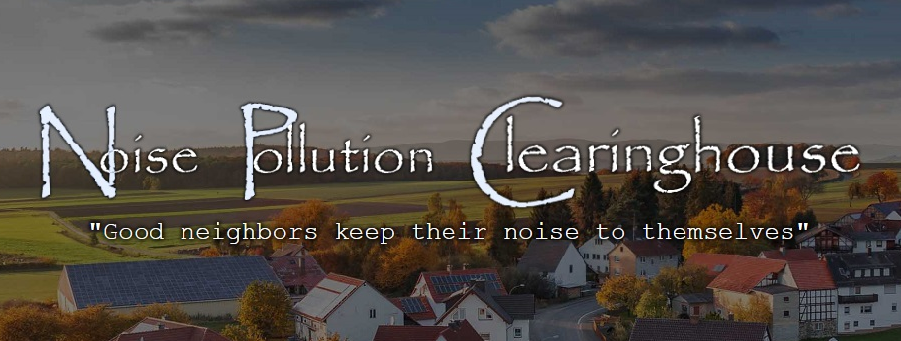
The American Public Health Association promotes the health of both people and communities. They help to improve the field of public health and they claim to be advocates for science-based public health concerns and policies. They are the largest agency with a roughly 150-year perspective, a diverse membership, and the power to shape government policies in order to promote public health.
APHA on Noise Pollution
The American Public Health Association has long advocated for more research, education, and policy to combat noise pollution in the environment. In recent decades, the public health sector has gained a better appreciation of the negative health effects of ambient noise pollution.
APHA advocates for collaboration between federal and state noise reduction programs, since there are several cases where federal experience coalitions can reduce state redundancies, and federal research
support. They also advocate the national agenda-setting to be done more efficiently.
Their Work
The American Public Health Association archives Policy 7522(PP) (
APHA Policy Statement on Noise official website) and revisits its attempts to minimize the public health impacts of environmental noise emissions, given its pervasiveness and severe adverse health effects.
They advise the task force for the National Prevention Strategy to incorporate environmental noise emissions (info from the
official website) in its action plan for creating sustainable and protected communities.
The American Public Health Association collects baseline statistics on health conditions believed to be linked to noise exposure, such as non-occupational noise-induced hearing loss, heart disease, and hypertension.
They also call for increased noise pollution monitoring and research in the United States, as well as the implementation of sound-level guidelines for significant sources of noise, such as construction vehicles, noise labels on goods, new and amended standards for recommended exposure thresholds that take into account health hazards, and technical assistance to states.
Video: American Public Health Association President-Elect Interview
Features
Quiet Rights keeps its members informed. Members of their listserv are notified as soon as problems concerning quiet in the state arise. The effects of motorized recreation on other people,
wildlife, and habitats are included in their newsletters and information packages. The laws and regulations that regulate peaceful and motorized recreation can be found on their website.
History of Alaska Quiet Rights Coalition
A group of Alaskans gathered in November 1996 to address their shared concern about the lack of natural quiet on public lands. Homeowners, lodge owners, small backcountry tourism companies,
nature lovers, and quiet outdoor recreationists all came together to fight for an equal share of public lands for quiet users, and to see that this share is preserved for future generations.
They then created a network of volunteers available to be Regional Contacts from across the state, wrote bylaws, became a 501(c)(3) organization, and built statewide member and sponsor lists, many of which were recruited from the Southcentral Alaska area which is now in about 500 members.
Their Works
The AQRC works to maintain quiet in a multitude of areas, and they mobilize their representatives as problems arise that need their attention. Their action alert was successful in defeating Anchorage’s plan to allow snow machines on city streets and trails.
Quiet Rights also sues to get the statute enforced. Quiet Rights opposed the Forest Service’s decision to massively extend heli-skiing in the Chugach National Forest in federal court.
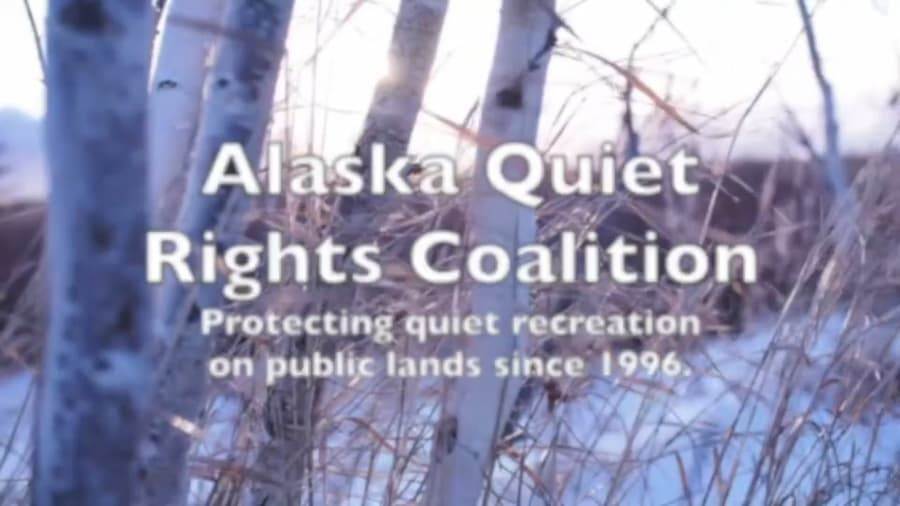
The Quiet Use Coalition is a non-profit organization dedicated to preserving and maintaining quiet use areas on federal lands and waterways while also maintaining natural soundscapes and wildlife habitat. They are concerned with noise on the Forest Service, Bureau of Land Management, State, and County land, as well as roads and trails that run through those lands and through major cities. They operate mostly in Chaffee and neighboring areas, but also in other parts of Colorado.
History of The Quiet Use Coalition
In central Colorado’s Upper Arkansas Valley, the Quiet Use Coalition was formed concerning the rapidly increasing use of personal motorized recreational vehicles (ATVs, dirtbikes, snowmobiles, and jet skis) on public lands and waterways.
The Quiet Use Coalition was formed in response to the concerted attempts of a small group of public land users, mostly funded by makers of motorized PMRVs (many of whom are based in other countries), to extend the operation of these vehicles to the far reaches of public lands.
Features
They volunteered their time to assist public land managers. For instance, they have volunteered thousands of hours in the field to help public land managers restore damage, improve habitat, and enhance areas for peaceful recreation while also helping to protect the environment. Repairing and avoiding the harm caused by reckless recreational usage is also one of their programs.
Their Work
They serve as public property guardians. They have adopted a number of nearby trails and hike them as well as do trail maintenance. They also keep an eye on the highways, parks, and open spaces in the city, monitoring any dangerous or unlawful activities and working to discourage them from happening again and promote responsible use.
QUC collaborates with government land authorities to improve, preserve, and expand quiet use opportunities, as well as inform the public and advocates about responsible and sustainable quiet use through booths at festivals, newsletters, and other means.

The Rutgers Noise Technical Assistance Center (RNTAC) is a component of the Air and Noise Pollution Training Program at Rutgers (
official website) – The State University of New Jersey’s Department of Environmental Sciences (
official website). Thousands of investigators from all over the United States have been certified by the Rutgers Noise Center in sound level assessment for the purpose of determining compliance with local or state noise codes.
The credential provided by their courses, including “Community Noise Enforcement,” is recognized by courts from coast to coast and beyond.
Features
RNTAC’s training is intended to help prosecutors get familiar with sound level assessment methods, procedures, and technologies for regulatory enforcement interpretation and evidence documentation. No prior experience is required for their courses; all that is required is the ability to learn a very valuable skill.
History of Rutgers Noise Technical Assistance Center (RNTAC)
For more than 40 years, the RNTAC has provided noise mitigation services. They are the last surviving Noise Technical Assistance Center that was initially contracted by the Office of Noise Abatement and Control of the United States Environmental Protection Agency (
official website). All other regional centers have closed after ONAC closed in the early 1980s.
Their Works
For several years, the RNTAC has been the teaching agent for the New Jersey Department of Environmental Protection (
official website). Any noise compliance officer in New Jersey is required by law to take their qualification course. Out-of-state investigators have also participated in Rutgers University quarterly classes, including those from different states.
They are the United States’ only credential program. Apart from teaching, they have aided hundreds of people, townships, police forces, businesses, health departments, and other organizations in the past year. They’ve also assisted many cities in developing and implementing noise ordinances.
Battling Noise Pollution is a National Challenge at Rutgers
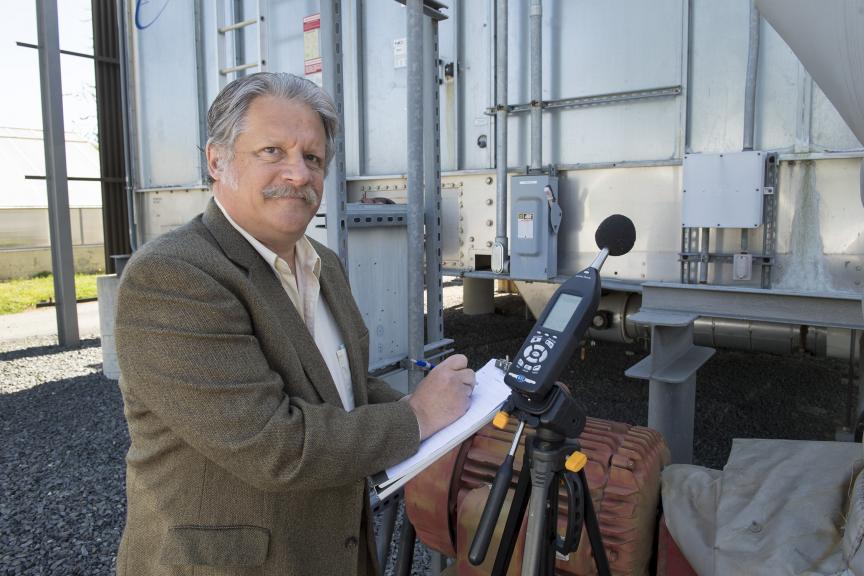
Their organization strives to raise awareness of the growing issue of noise pollution and the risks of noise to our physical, emotional, and spiritual well-being; to work for noise control through education, legislation, and compliance, as well as promoting conscientious
behavior; and to encourage appreciation of the right to quiet as a fundamental human right.
History of Right to Quiet Society for Soundscape Awareness and Protection
The organization was established in 1982 as a voluntary organization in Vancouver, British Columbia, with the goal of increasing public awareness of the harmful impact of noise on health, working for noise control through improved management and compliance, and promoting responsible noise behavior.
Ever since their foundation, they continuously seek a world where silence is a natural aspect of life, and where you can listen to the sounds of nature without being interrupted by
machine noise or artificial stimulation.
Features
The organization keeps track of and disseminates information regarding noise reduction activities and public hearings across Western Canada, North America, and the world; they also send out action notices about lobbying campaigns across North America, and they respond to public inquiries about noise problems.
They also share personal experiences, such as triumphs and failures. Listen to the Raindrops, The Book of Noise, Stillness, Daily Gifts of Solitude, One Square Inch of Silence, and In Pursuit of Silence are only a few of the books the Society has contributed to libraries across British Columbia over the years.
Their Work
The Vancouver Board of Parks and Recreation (
official website) named three beaches as quiet areas, prohibiting amplified sound, thanks to the Society’s efforts. The Society played a key role in convincing the Vancouver City Council to impose building work limits, such as no work on Sundays and holidays.
The Society also assisted in the formation of an Urban Noise Task Force (
official website) in Vancouver, which produced 165 noise-control guidelines. On a regional basis, the Society had a consultation on the creation of natural reserves in a rural region that was declared as being free of anthropogenic noise, like planes, except for emergency and rescue operations.
Video: How NOISE POLLUTION Is Ruining Your Life








